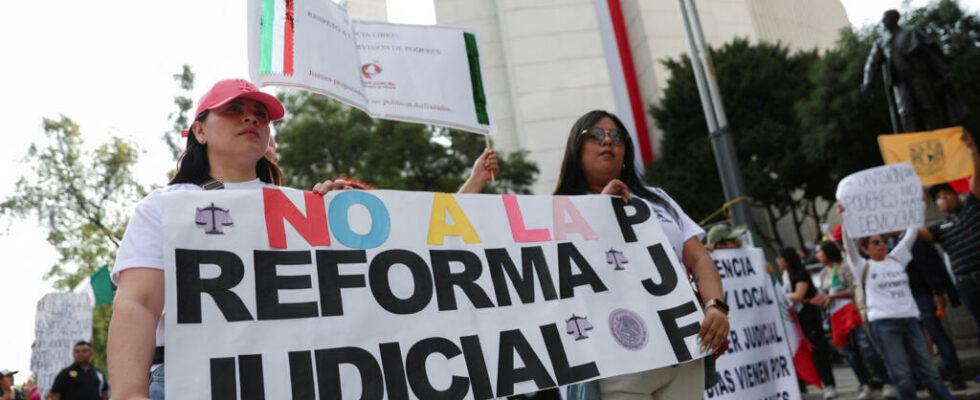The approval of the justice reform wanted by outgoing President Andres Manuel Lopez Obrador in a Senate committee on Sunday, September 8, represents a further step towards the entry into force of this highly contested text. Just before, thousands of people had demonstrated in Mexico City to ask senators to oppose this reform, which plans to elect all judges and magistrates in the country by popular vote.
2 min
With a Mexican flag in one hand and a placard in the other, thousands of protesters – mainly people who work in the justice sector – took to the streets of Mexico City on Sunday, September 8, to protest a reform that provides for the country’s judges and magistrates to be elected by “popular vote.” The procession went up one of the largest avenues in the Mexican capital to stop in front of the Senate, where a Senate commission on justice reform was held a few hours later.
In the demonstration, the crowd shouted “No to dictatorship” to denounce a text which, according to its opponents, favors the presidential party Morena and allows it to control the choice of candidates for the positions of judge and magistrate.
Anger in the street does not prevent the text from being validated by the Senate committee
Other criticisms include that the reform does not offer enough guarantees against armed groups that could corrupt judges and take control of the justice system, but this argument is dismissed by the Mexican president. Andres Manuel Lopez Obrador, who will hand over power to the elected president from his party, Claudia Sheinbaumon October 1. For him, the text will serve precisely to fight against the already corrupt magistrates.
Despite the anger of the street and after several hours of debate, the text was validated by the Senate committee. The next step will be the presentation of the text, Tuesday, September 10, before all the senators who should then decide by a vote on Wednesday. Wednesday, September 4, the text was already adopted by the Chamber of Deputies where the presidential party and its allies are ultra-majority.
Also readMexico’s President warns Supreme Court of possible censorship of his reform
